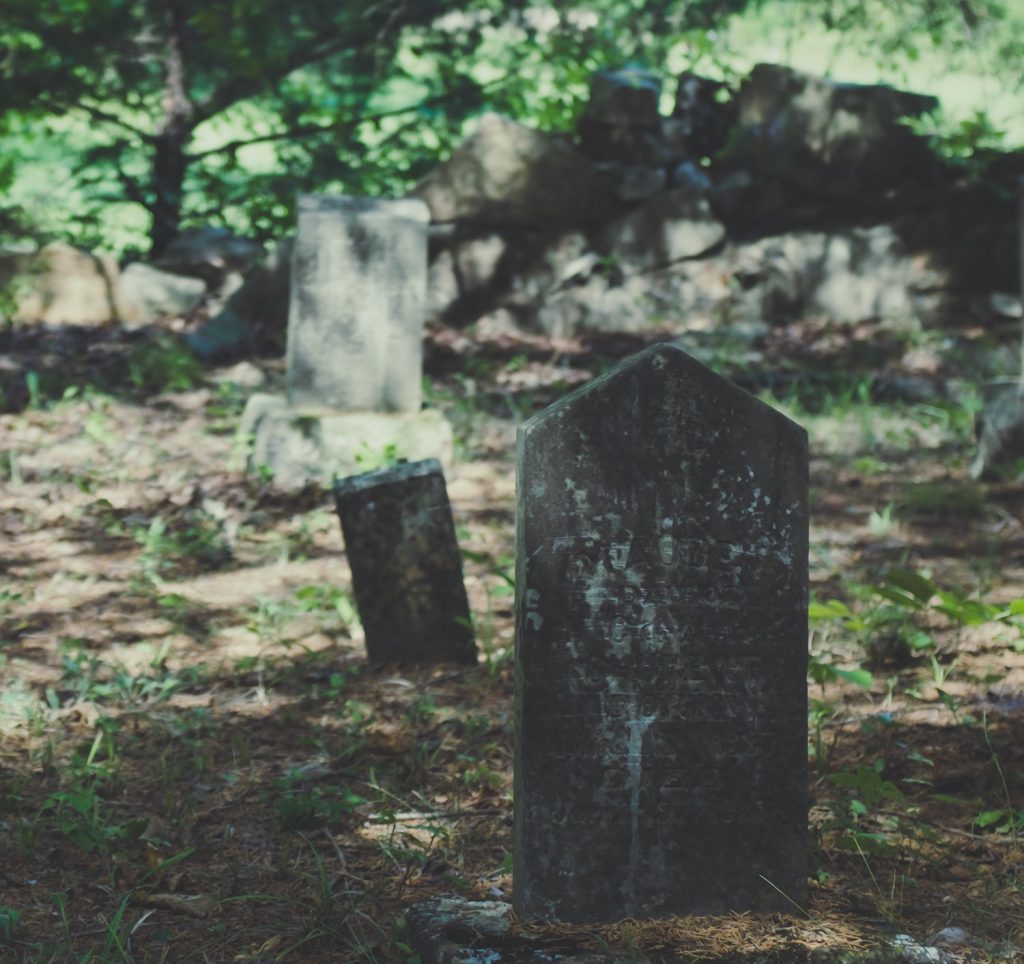Phantasmal Foils: Ghosts in the Works of Lê Thi Diem Thúy and Clarice Lispector
by Emma Holleman Jones

This analysis explores connections between two novels, The Gangster We Are All Looking For by Lê Thi Diem Thúy and The Hour of the Star by Clarice Lispector. Despite differences in the narrative styles of their works, Thúy and Lispector both create narrators who constantly define themselves in relation to an “other.” The narrator of The Gangster We Are All Looking For returns to her deceased brother again and again as she reflects upon her past; similarly, the narrator of The Hour of the Star obsesses over a fictional figure named Macabéa. From their chilling presences to their untimely deaths, this essay elaborates upon the phantasmal qualities of the brother and Macabéa. Interestingly, these ghostly figures share tangible similarities with the narrators whom they haunt. Having a phantasmal counterpart informs both what the narrators think about, dictating important themes of the novels like life and death, and how they contemplate these issues, in turn affecting the structure of each novel. Therefore, despite initial differences between the two novels, we see they share a unique similarity in their use of a phantasmal foil: a discarnate companion and twin who affects the subject and nature of the narrators’ contemplations.
Key Words: Ghosts, Phantoms, Foils, Narrative Style, Narrator
From their writing styles to the times and places in which they wrote, Lê Thi Diem Thúy and Clarice Lispector differ greatly as writers. Their novels The Gangster We Are All Looking For and The Hour of the Star make these dissimilarities markedly apparent. Lispector’s The Hour of the Star bends conventions of storytelling and language use while gaining structure from the relatively straightforward chronology of its telling. Thúy approaches the novel in a more conventional way and abides by typical language practices, but she jumps around both spatially and temporally. Despite these contrasts, both novels contain a narrator inextricably involved in the text. These narrators also seem starkly different at first glance: the pensive narrator of The Gangster We Are All Looking For contrasts with the energetic and loquacious Rodrigo S.M. of Lispector’s novel. Both narrators, however, have a defining relationship with a discarnate character, and these relationships are of central importance to the works. This essay will explore the phantasmal nature of these omnipresent figures, the similarities between the narrators and their wraiths, and how the differences between the narrators and their ghosts lead them to contemplate existence and mortality.
Non-living loved ones follow both Thúy’s narrator and Rodrigo: a dead older brother haunts Thúy’s narrator, while a fictional person of his own creation consumes Rodrigo. Thúy demonstrates the narrator’s affection for her brother via her longing for him, exemplified in passages such as the following: “If he was here, I’d press my head against his belly, the two of us like dogs sleeping through the heat of midday” (Thúy 154). This sentence captures the narrator’s love for her brother through her yearning for the natural intimacy and physical comfort they would share as siblings if he lived. Despite his constant derision of her, Rodrigo also speaks directly of his fondness for the protagonist of his story, Macabéa. He states, “Only I, her author, love her” (Lispector 19). This quote indicates his affection for Macabéa while highlighting his acute awareness of Macabéa’s fictionality. Combining these two observations and his derision of her, one could argue that he views her with the condescending love of a creator. Therefore, although the nature of their love differs, the two narrators clearly express their affection for a non-living figure in each novel.
These loving connections form the foundation for the omnipresence of the brother and Macabéa in each novel: both Thúy’s narrator and Rodrigo regard the brother and Macabéa as real, constant presences in their lives. For example, in The Gangster We Are All Looking For, the narrator’s brother lives on in her imagination after death. At his own funeral, she envisions him “watching all this and laughing into his hands” (Thúy 141). Later, on her first day of school in America, she wonders, “Could he see me standing here? Was he wondering why I wasn’t playing with the other children?” (Thúy 19). In her mind, the memory of his boisterous nature and his concern for her provides comfort as she faces difficult situations. Despite being fictitious, Macabéa also seems real and present in Rodrigo’s mind. He describes her as a “whole person who surely is as alive as [he is]” (Lispector 11). In fact, he imagines that she is so palpable that he can “give her a good bath, a plate of hot soup, [and] a kiss on the forehead” (Lispector 50). Here, Rodrigo daydreams about a companionship with Macabéa, despite acknowledging that this wish represents an “if only” (Lispector 50), an impossibility because of her fictionality. Despite their absences, Thúy’s narrator and Rodrigo regard their loved ones as real, mental companions.
The narrators find mental companionship and constancy in their loved ones to the degree that these relationships actually beget physical interactions, introducing elements of the supernatural to both novels. For example, Thúy’s narrator experiences a tangible encounter with her brother after he has died: “I thought I felt my brother’s breath upon me . . . a chill now at the center of my spine” (Thúy 75). Whether a truly metaphysical moment or the product of the young narrator’s imagination, this physical haunting demonstrates the brother’s sorrowful and tangible presence to the narrator, like that of a ghost. While Macabéa does not die until the closing of the book, she nonetheless operates as a phantom as well. Physically, Macabéa shares the incorporeality of a specter. Rodrigo says that she “scarcely has a body to sell” and that she is best described as one of many “vacancies in beds in a room” (Lispector 5, 6). Additionally, Rodrigo says that he “was even a bit contented” before she “turned up in his life,” and now she “doesn’t want to get off [his] shoulders” (Lispector 9, 13), much like the continual and upsetting presence of a haunt. The fact that she is “stuck to [his] skin like some sticky treacle or black mud” (Lispector 13) further highlights the physicality of Macabéa’s presence. Therefore, unsettling physical hauntings plague both Thúy’s narrator and Rodrigo, much as ghosts do.

Incomplete or unjust deaths often beget ghosts, leaving them someone to plague on earth. Macabéa and the brother present no exception to this rule, both dying early and accidentally, and they leave Thúy’s narrator and Rodrigo with complicated and troubling emotions. For example, after her brother dies by drowning, Thúy’s young narrator does not comprehend that he has died for a long time, saying that he simply “left” or is “still in Vietnam” (Thúy 20, 89). Disturbingly, she imagines they play games after his death, saying that she “tried to lie as still as he” and that “It was like magic how still he lay” (Thúy 128). These passages illustrate how her blissful denial creates a strangely happy and positive reaction to his passing. Macabéa’s death by automobile accident in The Hour of the Star generates a similar denial in Rodrigo. The narrator promises us that he “won’t speak of death and only of a hit-and-run” and that he will “do everything [he] can to keep her from dying” (Lispector 70, 71). Despite these promises, seemingly against the narrator’s will, Macabéa dies. And, following the drawn-out denial of her impending death, Rodrigo also describes her death in a strangely positive way, with words like “victory,” “reflowering,” and “coronation” (Lispector 75). Both narrators, then, respond with denial and positivity to the deaths of their haunts. Although Macabéa’s death occurs at the end of the novel (and, therefore, after Macabéa’s haunting of the narrator), the fact remains that both narrators deal with these deaths strangely, as often occurs with the phantasmagoric.
Thúy’s narrator and Rodrigo demonstrate simultaneous desires to escape their beloved poltergeists and to remain in their presences. The Gangster We Are All Looking For displays this conflict of desires when the narrator notes the following about her brother, “I had been waiting for him but something kept me from going to him” (Thúy 74). Despite wishing to see her brother, “something” holds her back, perhaps guilt or fear. A scene of domestic violence further exemplifies this complicated relationship: “To protect myself, I tried to forget everything . . . The only thing I couldn’t drive away was the memory of my brother” (Thúy 117–118). Does she want to push the memory of her brother away with the others, but finds herself unable? Or, does she resist burying this memory because it centers her while she endures trauma? The ambiguous “couldn’t” of this line highlights the nature of her relationship with her brother: he simultaneously follows her like a bad dream and serves as an essential presence in her life. Rodrigo also displays this push-and-pull with Macabéa. He expresses annoyance about the girl’s continual presence, and he painstakingly avoids talking about her until the second quarter of the book, citing that he is trying to “work up the nerve” and that he is “scared” (Lispector 6, 9). Yet, while he expresses fear of talking about her, he also complains, “I have a fidgety character on my hands . . . who escapes me at every turn” (Lispector 13). This complaint demonstrates that, even as he delays encountering Macabéa on the page, he wants to do so. The tug-of-war between the love for and rejection of their loved ones, a tension which often characterizes hauntings, demonstrates another spectral similarity between the two novels.
The narrators display striking similarities with their wraiths, similarities so extreme that the narrators even serve as physical extensions of their specters. For example, early in The Gangster We Are All Looking For, a friend tells Thúy’s narrator that she looks like her brother because of her juvenile androgyny (Thúy 71). The fusion of the narrator and her brother continues in her chilling encounter with his ghost, which leaves her fingers “wrinkled with cold, as if [she had] been swimming for hours” (Thúy 77). Given that her brother died by drowning, this passage hints at a fluidity between the narrator and her brother. In fact, the narrator herself acknowledges and facilitates their merging by imagining that “everything that was happening to [her] was also happening to him” (Thúy 148). Although Rodrigo ridicules Macabéa, he also compares himself to her throughout the novel. He laments, “nobody would miss me either,” and he even pleas, “May the gods never make me describe a lazar because then I would break out in leprosy” (Lispector 6, 30). This line demonstrates that when he writes he manifests the qualities and ills of the person he describes (in this case, Macabéa). Like Thúy’s narrator and her brother, Rodrigo even mixes with Macabéa physically: “I see [Macabéa] looking in the mirror and . . . in the mirror appears my weary and unshaven face. We’re that interchangeable” (Lispector 14). Thúy’s narrator and Rodrigo both have marked similarities with the characters that follow them throughout the novels, similarities which are so strong that the lines between them occasionally blur.
While the occasional blurring between the narrators and their haunts certainly adds another spectral quality to both stories, these eerie similarities also serve to underscore the main difference between the narrators and their ghosts: unlike their haunts, the two narrators are alive. Back visiting Vietnam for the first time, Thúy’s narrator recounts, “I swam straight out, as fast and as far as I could go, my body rocking from side to side, my arms arcing through the air, my hands cutting into the dark water” (Thúy 155). This scene depicts the narrator’s straining efforts to immerse herself in the sea where her brother drowned a decade after his death. But, even as she seeks to become one with him, her body is “rocking,” her “arms arcing,” and her “hands cutting.” The physicality of this scene emphasizes that the narrator, unlike her brother, lives. No matter how hard she tries, she cannot escape this fact. Similarly, Rodrigo acknowledges that he “can’t quite be [Macabéa]” (Lispector 24), despite their interchangeability. Unlike the fictitious Macabéa, he can step away from the story when he no longer wants to write (Lispector 61). While she dies at the end with no control over her own fate, he says, “As for me, I substitute the act of death for a symbol of it . . . I who symbolically die several times” (Lispector 73). In this way, he almost boasts of a distinction between himself and Macabéa; he has free will, the capacity to write his own fate on the page but then to continue living afterwards. Therefore, despite their uncanny similarities, the ghosts of these novels serve as foils who highlight the life of the two narrators.
The one, glaring contrast between the narrators and their non-living counterparts—their life—serves as the impetus for the narrators to explore questions of existence and mortality. For example, in The Gangster We Are All Looking For, the narrator says the following of her brother: “I could ask him all of my questions. Where did you go? Why didn’t you take me with you? Was it cold there?” (Thúy 74). The second question voices the survivor’s guilt of the narrator. It demonstrates her bewilderment at being the one left behind, the one alive. The first and third questions demonstrate that this incomprehensible difference has prompted her to wonder about the afterlife. The fact that she asks about the afterlife and her distance from it demonstrates that her brother has catalyzed preponderance of her own life and mortality. Rodrigo follows a similar thought process as he contrasts himself with Macabéa. He realizes that he “can’t quite be her” because he asks himself, “who am I?” (Lispector 24), unlike Macabéa who does not consider her own purpose because she is a fictional character. Although this ultimately leads him to the negative conclusion that he lives “for nothing” (Lispector 24), he has nevertheless explored the purpose of his own existence by contrasting himself with Macabéa. Additionally, Macabéa’s fictional death reminds him of his own mortality: “My God, I just remembered that we die. But—but me too?!” (Lispector 77). Through considering himself against Macabéa, Rodrigo questions the purpose and brevity of life, much as Thúy’s narrator explores her own life and mortality in the context of her brother’s death. The sharp contrast between the narrators and their disincarnate companions serves as the impetus for Thúy’s narrator and Rodrigo to explore existence and mortality, demonstrating that these ghostly figures prompt contemplation of existence and death in both novels.
Macabéa and the brother serve a similar purpose in each work because of their ghost-like qualities, but their phantasmal natures also inform the structures of the novels themselves. For example, The Gangster We Are All Looking For switches constantly between different time periods and spaces. The narrator’s efforts to come to terms with her brother’s death likely underlie this jumpy, episodic style. We see evidence of this at the end of the novel when the narrator stands at her brother’s gravesite: “His name, the years of his birth and his death, all etched in red, do not identify him to me in any way” (Thúy 154). Even the most tangible traces of her brother, his name and remains, do not satisfy her quest for him. The fact that the novel ends shortly after this moment of defeat suggests that her exploration of different memories represented a search for her brother, a chase after his ghost which she abandons when she deems it hopeless. Macabéa’s incorporeality similarly dictates the form of The Hour of the Star. For example, we see Rodrigo’s digressive and discursive style notably in how he grapples with Macabéa’s name. Over the majority of the novel, he struggles with what to call her, evolving from not “even know[ing] this girl’s name,” to calling her “northeastern girl” and “typist,” to finally saying her name halfway through the book (Lispector 10, 13, 35). His inability to say Macabéa’s name perfectly represents how his difficulty confronting Macabéa creates the tortuous nature of the writing itself. The brother and Macabéa, therefore, play important roles not only because they serve as the basis for what the narrators contemplate but also how they express themselves: the narrators attempt to explore the tough topics of death and mortality through disconnected memories and circuitous ramblings.
Despite the dramatic differences between Thúy and Lispector’s novels, Macabéa and the brother of Thúy’s narrator occupy similar roles in each story. They serve as continuous presences in both novels due to their intimate relationships with the narrators. They bear many of the trappings of the traditional specter, from their mental omnipresences to their physical hauntings. Macabéa and the brother also affect the narrators in the same way that ghosts would: the narrators exhibit strange reactions to their deaths and simultaneously long for and reject their haunts. The similarities between the narrators and their poltergeists even allow Macabéa and the brother to physically inhabit their respective narrators, the pinnacle of supernatural interaction. Finally, these spectral figures serve the role that ghosts often do in chilling stories at bedtime. Through the contrast of their own incorporeality, ghosts remind us of our own existence and, therefore, mortality. Via the stark differences of their death and fictionality, the brother and Macabéa act as phantasmal foils, catalyzing the narrators’ contemplation of life and death while informing the meandering narrative styles of the novels as the narrators struggle to grapple with these unsettling topics.
Works Cited
Lispector, Clarice. The Hour of the Star. Translated by Benjamin Moser, New Directions, 2011.
Thúy, Lê Thi Dem. The Gangster We Are All Looking For. Anchor Books, 2004.
Dedication: to Marie, for listening
